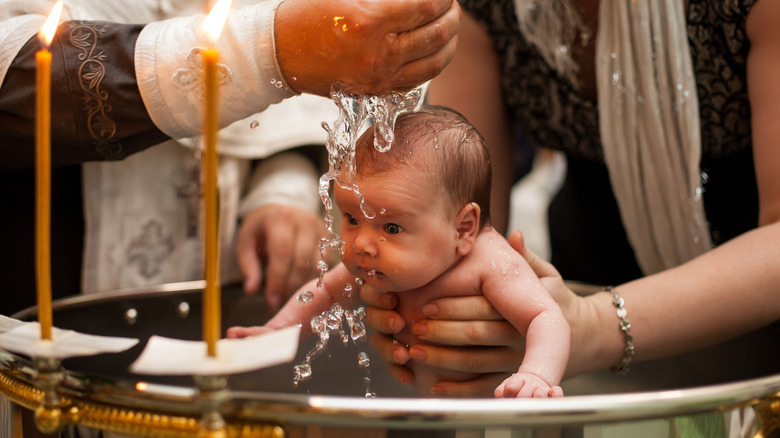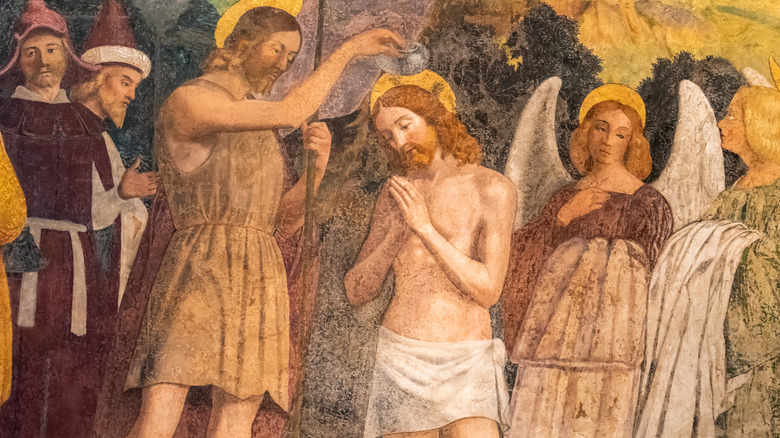What Is The Significance Of Baptism In The Bible?
For two thousand years, Christians have been practicing a rite known as baptism. For some Christians, that means sprinkling water on the person being baptized, as depicted in the image above, while other Christians believe it requires full immersion in water. Similarly, some Christian denominations baptize infants and/or children, while other denominations only baptize those who are willing and able to make the decision for themselves — a concept known as "believer's baptism," as Ministry Magazine explains.
In fact, baptism as a concept predates Christianity by centuries, and indeed, it was not only practiced by Jews before and during the time of Jesus, but Jesus himself was baptized. In fact, so significant was Jesus' baptism (by John the Baptist, as recorded in Matthew 3) that, after the act was completed, God himself purportedly announced that Jesus was his son and that God was pleased with him.
Christians have since taken the ancient Judaic practice and made it their own, and even added another layer of meaning to it.
Baptism symbolically washes away one's sins
Writing in Learn Religions, Mary Fairchild notes that the concept of ceremonially washing away one's sins predated Jesus by centuries. Indeed, according to Ministry Magazine, John the Baptist practiced the ancient Judaic rite, and though he didn't deem himself worthy to baptize Jesus, he did so anyway, thus fulfilling the symbolic start to Jesus' ministry.
Jesus himself ordered his disciples to continue the practice, via the Great Commission, and as such, baptism remained a part of Christianity even as the religion moved away from its Jewish roots.
However, Christianity added some additional layers of meaning to the concept, according to Learn Religions. Though it did and does symbolically wash away the sins of the person being baptized, it also became something of a metaphor for the death, burial, and resurrection of Jesus. In other words, the person being baptized ceremonially dies and is then ceremonially resurrected into a new life. Further, for some Christians baptism serves as a sort of public declaration of their intention to be a Christian and live a Christian life.

